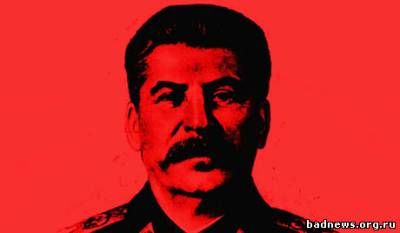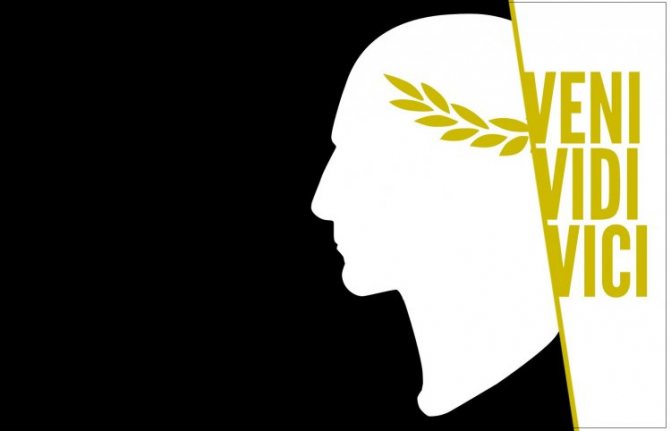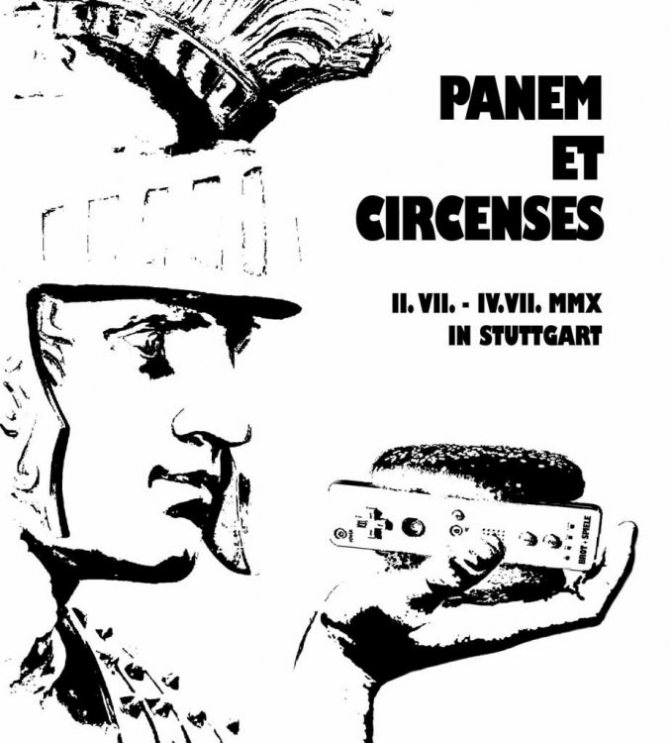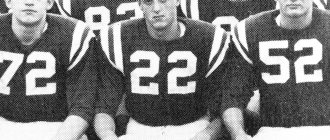New on the blogs

I, the Leader of the great nation, On the hills of Georgia was born, In battles since the Seventeenth year, Nailed to the cross of Russia.
Half a century since I left the world, My friends and countrymen... I have ruled Russia for thirty years! Those years are now far away...
I've partaken of the sacraments of the church, But I no longer believe in dogma, I've parted from the religious ministry And soon became a communist.
I saw the disunity of the classes, With the needs of the workers was familiar, Later, leading the masses himself, Became a disciple of Lenin.
I have restored order to the country, I have kept my oath to Lenin. Through the thorns of attack, I revived life in Russia.
You say I slaughtered her enemies in vain, That living under me was dangerous, That I created false gods?
But you, lackeys of capital, What have you given to my country? Under you, the Russian people's life was worse than the war.
I built canals and cascades of hydroelectric power stations,
I dislodged unfit commanders, I shook up the Party apparatus, I kept uniforms clean, I saved the country from filth.
I created the Victory Army before which the enemy fled. Overcame misery and poverty, The Soviet people were victorious.
I built cities, factories, Expanded the Motherland's limits, But you've divided the nations. The curse of your grandchildren is your fate.
I built tanks and planes, I built the mighty Red Fleet, I prepared space flights, I saw for years to come.
The bourgeoisie is in power again, The workers are slaves of the rich, The country is torn apart, The people are like orphans.
I built schools and hospitals, museums, kindergartens, I decorated the Russian capital, I saved the world from the atomic disaster.
In my time thieves lived in the "zones" On the construction sites important for the country, In my time you would rot in prisons, Thieves and crooks' sons.
I fought Hitler alone, I waited a long time for a second front, I did not humble myself before the West, While my "ally" waited.
My orders rang like a bell at the front. And even a convict, suddenly useful, From the camps went to the infamy.
When "Krauts" broke through to Moscow, I beat the hell out of them. I beat the thought of "blitz" out of them, And in November I held a parade.
The capital remembers the Siberians saved it in hard times. From the parade went into battle, into immortality My heroic regiments.
It wasn't easy. Retreating, Fighting Russian troops. Revenge for the Fatherland, holy revenge For the Russian heart is close.
On the Volga they gave the German surrender. The enemy has learned what hell is, Forgotten victories and fortunes, But remembered Stalingrad.
Serving my "ally" as an example, I did not fawn over him like you. With their president and prime minister I fought tooth and nail.
I saved Europe from fascism, I defeated the Japanese, I led Russia to communism, but you like capitalism.
After the Victory I formed the Union of Friends of the USSR
I knew that trouble awaited my orphaned people. I wish I'd had time to repeat the year 37!
I had an overcoat and an old tunic, Three pipes, That's all I had, But I was a winner in battles, And you Chechens beat your face in...
The people had much to be proud of when I ruled for thirty years. And you'd better not be born. No forgiveness for traitors!
And the Russians had a quiet life, As long as I was the Master, the Leader!
I beat the Germans and the Italians, I put the crooks in jail, I spit on the howling Americans And I lowered prices every year.
All the nations of the Land of the Soviets are united into a friendly family. You have divided them. That's why I don't like democrats.
Where is the courage of the Red Army? Where is the valor of Stalin's regiments? You have no homeland, no flag. You're garbage for centuries to come!
My ashes are covered in mud by Party fodder Khrushchev and Gorbachev, the chatterer-turner, who rose from the mud to the princes.
Boris the thieving "democrat" who ruined my country, Blamed it on Stalin for his failures and failures.
I know what you're doing With the fruits of my labors, You're festering the people mercilessly. But for you too the axe is ready!
You have ruined the state. Ship of Russia ran aground. You've stolen the country's wealth, And the girls have gone on the street.
You've undermined the spirit of Russia. You've ruined Russia's spirit. You've exhausted the people's strength Through the hangover.
Even the spectre of dictatorship is more terrible to you than the vengeance of the gods, But a sheepskin with a pair of horns won't hide a wolf's hide.
I look at Russia not from the grave, From the blue distance. Half a century since the river stopped the flow of time.
My spirit is gone, The sons of October, Heroes of the First Five-Year Plan, Heroes of the World War.
Before I left, I said, Remember the Leader more than once. My spirit is always with my people, For Stalin thinks of you!
Ivan the Terrible's heir And Peter the Tsar's apprentice, I was the first and last Leader. It's time to remember Stalin!
"Posterity, have you forgiven me? - Who has done more for Russia than Stalin?"
The most famous Latin sayings
"Latin is out of fashion nowadays," Alexander Sergeyevich Pushkin wrote in Eugene Onegin. And he was wrong - Latin expressions often flicker in our speech to this day! "Money doesn't smell", "bread and circuses", "a healthy body has a healthy spirit"... We all use these aphorisms, some of which are twenty centuries old! We've chosen 10 of the best-known ones.


1. "Ab ovo»
According to Roman custom, dinner began with eggs and ended with fruit. This is where the expression "from the egg," or in Latin "ab ovo," meaning "from the beginning," comes from. It is these, eggs and apples, that are mentioned in Horace's satires. But the same Roman poet Quintus Horatius Flaccus clouds the picture when he uses the expression "ab ovo" in The Science of Poetry, in reference to the over-extended preface. Here, too, the meaning is different: to begin with the unspoken. And the eggs are different: Horace gives as an example the story of the Trojan War, which began with the eggs of Leda. From one egg, laid by this mythological heroine from a relationship with Zeus in the form of the Swan, Helen the Beautiful was born. And her abduction, as we know from mythology, was the occasion of the Trojan War.
2. O tempora! O mores! On October 21, 63 B.C., Consul Cicero gave a fiery speech in the Senate, and it had fateful significance for ancient Rome. The day before, Cicero had received information about the intentions of the leader of the plebs and youth, Lucius Sergius Catilina, to carry out a coup and assassinate Marcus Tullius Cicero himself. The plans were made public, and the conspirators' plans were thwarted. Catilina was banished from Rome and declared an enemy of the state. Cicero, on the other hand, was triumphant and awarded the title "father of the fatherland. So, this confrontation between Cicero and Catilina enriched our language: it was in his speeches against Catilina that Cicero first used the expression "O tempora! O mores!", which in Russian means "O times! O morals!".
Feci quod potui faciant meliora potentes Feci quod potui faciant meliora potentes, that is, "I have done all I could, let those who can do better." The elegant wording does not obscure the essence: here are my achievements, judge, says someone, summing up his activities. Why a nobody, though? At the origin of the expression we find quite specific people - the Roman consuls. It was a verbal formula which they used to use to end their reports when they handed over power to their successors. It was not exactly these words - the phrase acquired its refinement in a poetic retelling. And it is in this, finished form, that it is carved on the tombstone of the famous Polish philosopher and writer Stanislaw Lem.
4. Panem et circenses
The people have long since, since we do not sell our votes, Forgotten all their cares, and Rome, that once gave away Everything: Legions, and power, and bunches of lictors, Restrained now and only about two things restlessly dreaming: Bread and circuses! In the original 10th satire of the ancient Roman satirist poet Juvenal is "panem et circenses," that is, "of bread and circus games." Decimus Junius Juvenal, who lived in the first century A.D., truthfully described the mores of contemporary Roman society. The mob demanded food and entertainment, and the politicians were happy to corrupt the plebs with handouts and thereby buy their support. Manuscripts do not burn, and Juvenal's account of the cry of the Roman mob from the time of Octavian Augustus, Nero, and Trajan has transcended the ages and still signifies the simple needs of mindless people, easily bought by a populist politician.
5. Pecunianonolet
Everyone knows that money doesn't smell. Far fewer people know who said this famous phrase, and where the subject of smells suddenly came from. Meanwhile, the aphorism is almost twenty centuries old: according to the Roman historian Gaius Suetonius Tranquillus, "Pecunia non olet" - is the answer of the Roman emperor Vespasian, who ruled in the I century AD, at the rebuke of his son Titus. The offspring rebuked Vespasian for imposing a tax on public latrines. Vespasian held the money received as this tax up to his son's nose and asked if it smelled. Titus answered in the negative. "And yet they are of urine," Vespasian stated. And thus supplied an excuse for all lovers of unclean revenues.


6. Memento mori
When the Roman general returned from the battlefield to the capital, he was greeted by a jubilant crowd. The triumph would have made his head spin, but the Romans had the foresight to include a state slave with only one line in the script. He stood behind the warlord, held a golden wreath over his head, and from time to time repeated, "Memento mori. That is, "Remember death." "Remember that you are mortal," the Romans incited the triumphant, "remember that you are human, and you have to die. Glory is transitory and life is not eternal." There is, however, a version that the real phrase sounded like this: "Respice post te! Hominem te memento! Memento mori," translated: "Turn around! Remember that you are a human being! Be mindful of death." In this form the phrase was found in the Apologetics of the early Christian writer Quintus Septimius Florence Tertullian, who lived at the turn of the second and third centuries. "Momentarily into the sea," joked the movie Captive of the Caucasus.
7. Mens sana in corpore sanoWhen we want to say that only a physically healthy person is energetic and can accomplish much, we often use the formula: "a sound mind in a sound body." But that's not what its author had in mind! In his tenth satire, the Roman poet Decimus Junius Juvenal wrote:
One must pray that the mind be sound in a sound body. Ask for a cheerful spirit that knows no fear of death, That reckons the limit of his life as a gift of nature, That is able to endure difficulties of any kind...
Thus, the Roman satirist in no way connected the health of the mind and spirit with the health of the body. Rather, he was convinced that a mountain of muscle is not conducive to a vigorous mind and spirit. So who edited a text created in the second century A.D.? The English philosopher John Locke repeated Juvenal's phrase in his Thoughts on Education, giving it the appearance of an aphorism and completely distorting its meaning. Jean-Jacques Rousseau made the aphorism popular: he inserted it in his book "Emile, or On Education."
8. Homo sum, humani nihil a me alienum puto
In the second century B.C., the Roman comedy writer Publius Terentius Aphrus presented the public with a remake of a comedy by the Greek writer Menander, who lived in the fourth century B.C. In the comedy entitled The Self-Torturer, the old man Medenem reproaches the old man Hremet for meddling in other people's affairs and retelling gossip.
Have you not enough to do, Hremet? You meddle in other people's business! It does not concern you at all. Hremet excuses himself: I am a human being! I am no stranger to anything human.
Hremet's argument has been heard and repeated for more than two millennia. The phrase "Homo sum, humani nihil a me alienum puto," that is, "I am human, and nothing human is alien to me," has entered our speech. And it usually means that anyone, even a highly intelligent person, carries within him all the weaknesses of human nature.


9. Veni, vidi, vici
On August 2 according to the present calendar in the year 47 B.C. Gaius Julius Caesar defeated the king of the Bosporan state Pharnaces not far from the Pontic city of Zela. Pharnaces himself: after his recent victory over the Romans, he was self-confident and desperately brave. But fortune has betrayed Black Sea: the army Farnak defeated, fortified camp stormed, Farnak himself barely managed to carry feet. After catching his breath after a short battle, Caesar wrote a letter to his friend Matius in Rome, in which he reported his victory in three words: "I came, I saw, I conquered. "Veni, vidi, vici," if in Latin.
10. In vino veritasAnd these are Latin paraphrases of Greek philosophical thought! The phrase "Wine is a sweet child, it is also the truth" is attributed to Alcaeus, who worked at the turn of the seventh to sixth centuries B.C. It was echoed by Pliny the Elder in Book XIV of his Natural History: "According to the proverb, the truth is in the wine. The ancient Roman writer-encyclopedist wanted to emphasize that wine loosens tongues, and the secret comes out. Pliny the Elder's judgement, by the way, is confirmed by the Russian folk wisdom: "What sober person has on his mind, so drunk on his tongue". But in pursuit of a red word, Gaius Pliny Secundus and cut the proverb, which in Latin is longer and means something else entirely. "In vino veritas, in aqua sanitas," that is, loosely translated from Latin, "Truth may be in wine, but health in water."











